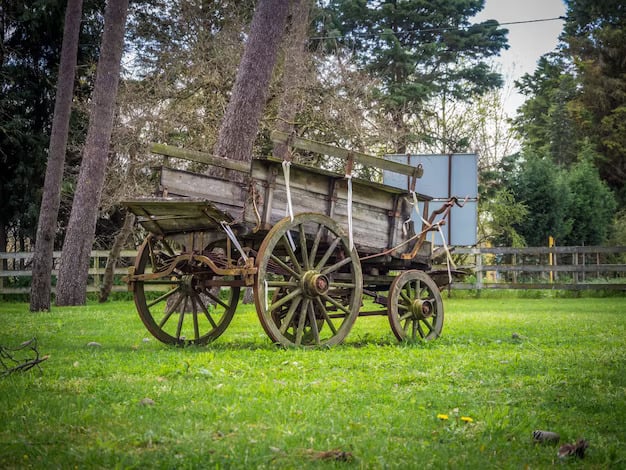North Dakota Educators, Are You Planting Only "Wheat" in Your Professional Field?
 In North Dakota agriculture, there are two very different approaches to farming. There is "monocropping," where you plant the same single crop over a vast area, year after year. It's efficient, but it depletes the soil and is vulnerable to a single pest. Then there is "permaculture," a system of creating a diverse, resilient, and self-sustaining garden ecosystem. Which one is a better metaphor for your #career? Is North Dakota’s continuing education requirement a chance to move beyond a professional monocrop and cultivate a vibrant permaculture garden?
In North Dakota agriculture, there are two very different approaches to farming. There is "monocropping," where you plant the same single crop over a vast area, year after year. It's efficient, but it depletes the soil and is vulnerable to a single pest. Then there is "permaculture," a system of creating a diverse, resilient, and self-sustaining garden ecosystem. Which one is a better metaphor for your #career? Is North Dakota’s continuing education requirement a chance to move beyond a professional monocrop and cultivate a vibrant permaculture garden?
Are You Planting Only "Wheat" in Your Professional Field?
What happens when you only know one thing really well? Being an expert in one area—your "wheat crop"—is great. But what happens when the "market" for that one skill changes, or a new challenge ("a pest") arises that your single skill can't solve? Continuing education is your opportunity to diversify your professional crops. If you're a master of #preschool curriculum, use your training hours to plant some "rows" of infant/ #toddler knowledge or some "patches" of administrative skills. This diversity makes your career far more resilient and adaptable.
How Do You Create "Companion Planting" for Your Skills?
What is the secret to a thriving garden ecosystem? Companion planting, where different plants support each other's #growth. A smart #educator uses continuing education to do the same with their skills. Take a course on trauma-informed care, and then "plant it next to" a course on positive guidance. The two skills will mutually support and enhance each other. Take a workshop on family #engagement and "plant it next to" one on cultural competency. This intentional pairing, facilitated by the broad offerings on the Growing Futures registry or from providers like ChildCareEd, creates a rich, interconnected professional ecosystem.
Are You "Composting" Your Experiences to Enrich Your "Soil"?
How do you turn challenges into growth opportunities? A permaculture gardener knows that waste is just a resource in the wrong place. They compost old plants to create rich new soil. Continuing education, especially courses that involve reflection, is your professional compost bin. It’s a chance to take your daily experiences—the successes and the failures—and break them down to understand what they can teach you. This process of reflection enriches your professional "soil," making you a more thoughtful and effective educator.
So, Is Your Career a "Vulnerable Field" or a "Resilient Garden"?
What is the long-term #health of your professional life? A career based on a single, unchanging skill set is a vulnerable monocrop. A career built on a diverse, interconnected, and reflective practice is a resilient permaculture garden. North Dakota's continuing education requirement is your annual invitation to get out in your garden. It’s your chance to plant new seeds, foster symbiotic relationships between your skills, and compost your experiences into rich new learning. It's how you cultivate a career that is not just productive, but truly sustainable.
References:
- Enriching Education: Field Trips
- Admin as Mentors in Early Education
- A Great Place for Education Includes All ONLINE
- CDA: Stand With Respect and Professionalism
- Character Development for Childcare Professionals
- Diversity, Equity, and Inclusion in Education
- Early Childhood Education
- Leveling the Playing Field: ERSEA for Head Start
- Mentoring Professional Etiquette in Child Care
- Montessori in Context: Decoding Educational Theories
- North Dakota Educators, Are You Planting Only "Wheat" in Your Professional Field?
- How Does North Dakota's continuing education keep your professional practice thriving?
- Is Your Professional "Well" Running Dry? How Continuing Education in North Dakota Refills It?
- How Continuing Education Builds Bridges for North Dakota Educators?
- Is Your "Professional Development" in North Dakota Just Clicking Through Slides?
- Why North Dakota Mandates Tending Your ECE "Crops" and "Field"?
- How Can North Dakota Educators Stay Current and Advance Their Careers?
- Can Continuing Education in North Dakota Directly Impact Child Outcomes?
- Is Your Professional "Pantry" Stocked for a North Dakota Winter?
- How Continuing Education Connects You to a Thriving North Dakota Town?
- North Dakota Growing Futures Career Pathways: A Clear Guide to Professional Advancement
- Is Your ECE Toolkit Getting Dusty? Why North Dakota Says "Update Now"?
- Elevate Your Career: From CDA Credential to Child Care Center Director in North Dakota with ChildCareEd
- Zen and the Art of Early Childhood Education: Self-Care for the Educators
- ECE Toolkit Getting Dusty? North Dakota Says "Update Now!"
- Why Professional Development Training is Worth the Investment for Early Childhood Educators
- Why Professional Development & Continuing Education Spark Joy (and Growth!)
- Building Brighter Futures: The Critical Role of Professional Development for Early Childhood Educators
- How CDA Council's Early Educators Leadership Conference is Shaping the Future of Early Childhood Education
- The Importance of Professional Development for Childcare Providers: Continuing Education and Training


